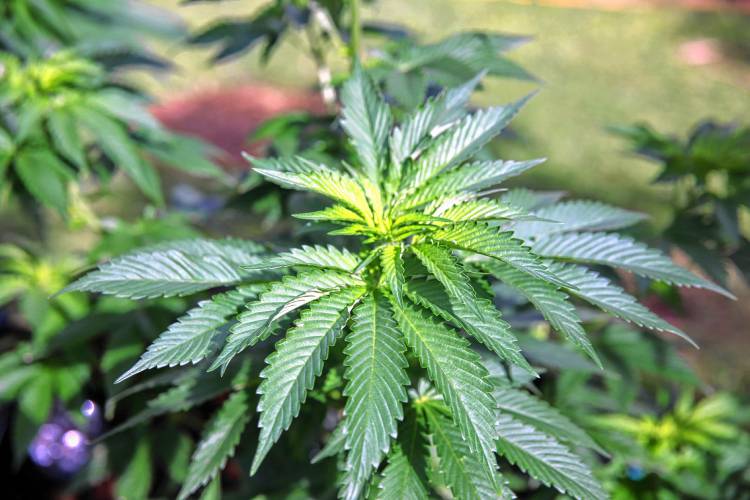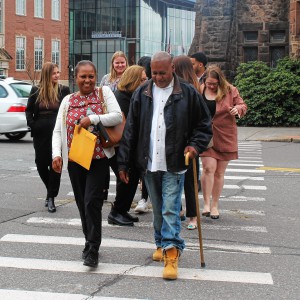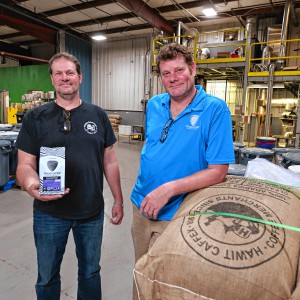Greenfield lifts cap on cannabis delivery operators as CCC guidelines expand access

AP File Photo/Marina Riker AP File Photo/Marina Riker
|
Published: 04-22-2024 9:56 AM
Modified: 04-22-2024 11:10 AM |
GREENFIELD — The city has dropped its limit on licenses for cannabis delivery operators, as the state Cannabis Control Commission (CCC) has drafted new guidelines aimed at expanding access to the industry.
City Council voted last month in favor of an amendment that lifts the four-license cap on marijuana delivery operators in Greenfield. The amendment was originally drafted to bring the city into compliance with a cannabis social equity law that went into effect last November.
The legislation called on the CCC to establish minimum standards for host communities to promote participation in the cannabis industry by portions of the population who were disproportionately harmed by the war on drugs. It also required every municipality in Massachusetts to draft a plan outlining the steps it will take to encourage equitable participation in the cannabis business.
“Greenfield is going to do the expansion of licenses. Those are all positive steps,” Cannabis Control Commissioner Bruce Stebbins said. “We’re happy to see communities taking those steps. And obviously, the new requirements under the law will require every city and town in Massachusetts that has cannabis businesses operating in their jurisdiction to also create and take those proactive steps.”
Currently, Greenfield is only home to one cannabis delivery operator, M2B Home Delivery, and has four other community host agreements with cannabis delivery businesses that have not yet sought licensing from the Zoning Board of Appeals. Loosened restrictions through the CCC’s social equity program, however, have the potential to grow the state’s cannabis delivery business.
Gyasi Sellers, CEO and founder of the cannabis delivery service Treevit, was one of the first cannabis delivery license recipients in Massachusetts. He began his delivery operation in 2021 as a participant of the CCC’s first social equity cohort. He said as informational and financial resources for potential cannabis entrepreneurs grow, so will the industry.
“There are groups in that area who have been interested in delivery, but it just wasn’t the right time, or they needed more information on the process,” Sellers said. “As more information gets out there … and as some of those changes are worked on behind the scenes, it’s only going to open the doors to more entrepreneurs in the area.”
According to the CCC, revenue from cannabis sales in Massachusetts has hit record-setting highs for the last six consecutive years. Stebbins added that outdoor grow facilities, a significant portion of which are located in western Massachusetts, make up roughly 40% of the state’s total grow canopy.
Article continues after...
Yesterday's Most Read Articles
 Greenfield homicide victim to be memorialized in Pittsfield
Greenfield homicide victim to be memorialized in Pittsfield
 1989 homicide victim found in Warwick ID’d through genetic testing, but some mysteries remain
1989 homicide victim found in Warwick ID’d through genetic testing, but some mysteries remain
 As I See It: Between Israel and Palestine: Which side should we be on, and why?
As I See It: Between Israel and Palestine: Which side should we be on, and why?
 Softball: Greenfield puts up 9-spot in the 8th inning to knock off rival Turners 11-2 in extra-inning thriller (PHOTOS)
Softball: Greenfield puts up 9-spot in the 8th inning to knock off rival Turners 11-2 in extra-inning thriller (PHOTOS)
 DA to announce breakthrough in 1989 unsolved homicide in Warwick
DA to announce breakthrough in 1989 unsolved homicide in Warwick
 Former Greenfield man granted new trial after 1995 murder conviction, walks free
Former Greenfield man granted new trial after 1995 murder conviction, walks free
While the industry is expected to continue growing as a result of these new regulations, Greenfield Planning Director Eric Twarog said the law’s updated guidelines on community host agreements will serve financial blows to municipalities hosting cannabis businesses.
Prior to the new regulations, cities and towns that hosted marijuana businesses were able to charge a 3% impact fee on cannabis sales to fund projects that counteract the perceived negative impacts associated with hosting a marijuana business. Under the CCC’s new regulations, municipalities may no longer charge the 3% impact fee, but instead, must retroactively charge businesses for their impacts on the community.
Although Greenfield will still collect a local 3% tax on cannabis sales, Twarog said the city has dropped its community impact fee, as it has not been negatively impacted by its cannabis businesses.
“The new regulations that were adopted by the CCC in November of last year definitely weighed heavily in favor of the cannabis industry and not municipalities,” he said. “To be quite honest, there has been little to no impact whatsoever with all these cannabis businesses coming into Greenfield, so I can kind of see why the CCC did what it did.”
Anthony Cammalleri can be reached at acammalleri@recorder.com or 413-930-4429.

 Wear Orange organizers prepare display to remember gun violence victims
Wear Orange organizers prepare display to remember gun violence victims Deerfield candidates, Whately incumbent discuss issues with voters at South County Senior Center
Deerfield candidates, Whately incumbent discuss issues with voters at South County Senior Center Fogbuster Coffee Works, formerly Pierce Brothers, celebrating 30 years in business
Fogbuster Coffee Works, formerly Pierce Brothers, celebrating 30 years in business
